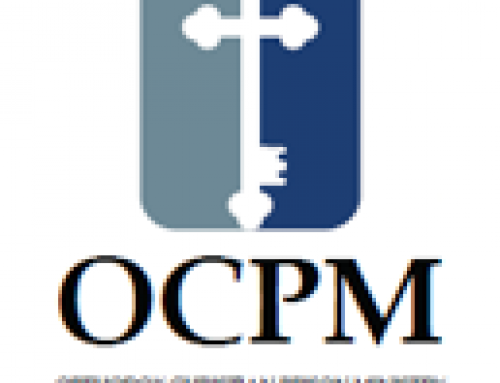This post was originally published on this site
St. John of the Ladder
The Life of St. John
St. John of the Ladder is honored by the church as a great ascetic and the author of the renowned spiritual book called The Ladder of Divine Ascent, for which he is named. (St. John Climacus in Greek)
There is almost no information about St. John’s origins. One tradition suggests he was born in Constantinople around the year 570, and was the son of Ss. Xenophon and Maria.
John went to Sinai when he was sixteen, submitting to Abba Martyrios as his instructor and guide. After four years, St. John was tonsured as a monk. Abba Strategios, who was present at St. John’s tonsure, predicted that he would become a great luminary in the Church of Christ.
For nineteen years, St. John progressed in monasticism in obedience to his spiritual Father. After the death of Abba Martyrios, St. John embarked on a solitary life, settling in a wild place called Thola, where he spent forty years laboring in silence, fasting, prayer, and tears of penitence.
St. John had a disciple named Moses. Once, the saint ordered his disciple to bring dung to fertilize the vegetable garden. When he had fulfilled the obedience, Moses lay down to rest under the shade of a large rock because of the scorching heat of summer. St. John was in his cell in a light sleep. Suddenly, a man of remarkable appearance appeared to him and awakened the holy ascetic, reproaching him, “John, why do you sleep so heedlessly, when Moses is in danger?”
St. John immediately woke up and began to pray for his disciple. When Moses returned in the evening, St. John asked whether any sort of misfortune had befallen him.
The monk replied, “A large rock would have fallen on me as I slept beneath it at noon, but I left that place because I thought I heard you calling me.” St. John did not tell his disciple of his vision but gave thanks to God.
St. John ate the food which is permitted by the monastic rule but only in moderation. He did not sleep very much, only enough to keep up his strength so that he would not ruin his mind by unceasing vigil. “I do not fast excessively,” he said of himself, “nor do I give myself over to intense all-night vigil, nor lay upon the ground, but I restrain myself.”
The following example of St John’s humility is noteworthy. Gifted with discernment and attaining wisdom through spiritual experience, he lovingly received all who came to him and guided them to salvation. One day, some envious monks reproached him for being too talkative, and so St John kept silent for a whole year. The monks realized their error, and they went to the ascetic and begged him not to deprive them of the spiritual profit of his conversation.
Concealing his ascetic deeds from others, St. John sometimes withdrew into a cave, but reports of his holiness spread far beyond the vicinity. Visitors from all walks of life came to him, desiring to hear his words of edification and salvation. After forty years of solitary asceticism, he was chosen as abbot of Sinai’s St. Catherine’s Monastery when he was seventy-five. St. John governed the holy monastery for four years.
At the request of the abbot of the Raithu monastery, St. John wrote the incomparable Ladder, a book of instruction for monks who wished to attain spiritual perfection.
Knowing his wisdom and spiritual gifts, the abbot requested St. John to write down whatever was necessary for the salvation of those in the monastic life. St. John felt that such a task was beyond his ability, yet out of obedience he fulfilled the request. The saint called his work The Ladder, for the book is “a fixed ladder leading from earthly things to the Holy of Holies” (Gen. 28:12).
The Ladder begins with renunciation of worldliness and ends with God, who is Love (1 Jn 4:8). Although the book was written for monks, any Christian living in the world will find it an unerring guide for ascending to God and a support in the spiritual life.
In The Ladder is a written account of his thoughts, based on the collected wisdom of many wise ascetics and on his own spiritual experience. The book is a great help on the path to truth and virtue. With the exception of the Scriptures themselves and St. Athanasius’ Life of Anthony, it is the most copied and influential book in Christian history.
Learn more about the life of St. John of the ladder here.
Feast Day: March 30th and 4th Sunday in Great Lent
How can St. John intercede for us?
Discussion around St. John of the Ladder
- St. John talks a lot about tears of repentance. How can we practice repentance in our own lives?
- Early in The Ladder, St. John suggests that we begin our path towards Christ with the foundation of innocence, abstinence (fasting), and temperance. What can we do to cultivate those virtues while in college?
- In Step 4 of The Ladder, St. John gives this advice to people in the world, “‘Do all the good you can; do not speak evil of anyone; do not steal from anyone; do not lie to anyone; do not be arrogant towards anyone; do not hate any one; be sure you go to church; be compassionate to the needy; do not offend anyone; do not wreck another man’s domestic happiness;3 and be content with what your own wives can give you. If you behave in this way you will not be far from the Kingdom of Heaven.”
What are your thoughts on this passage? Is there one area you’d like to focus on in the coming weeks? - His most famous book, The Ladder of Divine Ascent, is still read in monasteries every year during Great Lent to this day. Read a couple of the steps and discuss them with your chapter!
http://www.prudencetrue.com/images/TheLadderofDivineAscent.pdf
Learn his Troparion
Tone 8
With the rivers of your tears, you have made the barren desert fertile. Through sighs of sorrow from deep within you, your labors have borne fruit a hundred-fold. By your miracles you have become a light, shining upon the world. O John, our Holy Father, pray to Christ our God, to save our souls.



